当你读到 "元描述、alt 文本、索引和抓取 "这几个词时,你会想到什么?如果你没有说"搜索引擎优化",那么这篇文章就是为你准备的。
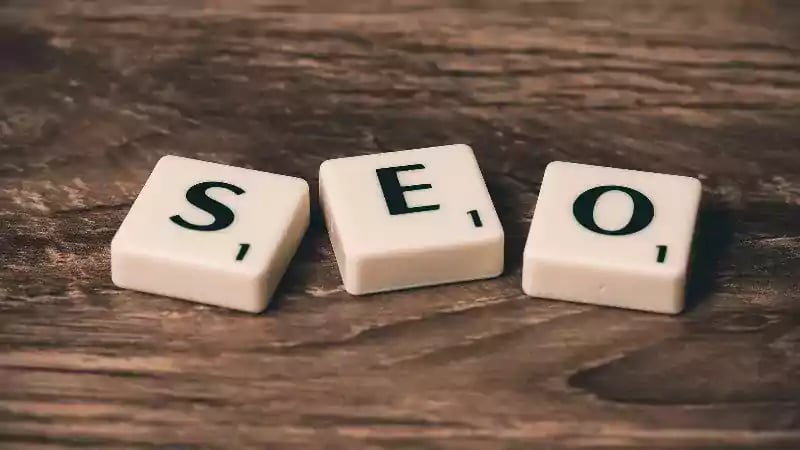
你的企业正在起步,参加所有行业展会,发送新闻稿,与风险投资人打交道。但你的网站呢?网站建起来了吗?如果是,,你是否进行 了搜索引擎优化 ,以 确保谷歌和其他搜索引擎能轻松找到你,并知道如何为搜索者分类你的内容?
只要掌握一些搜索引擎优化的基础知识,很多问题都可以很快解决。是的,搜索引擎优化是一个庞大的话题,而且我们并不打算在这篇博文中涵盖您需要了解的所有知识。这篇文章旨在让你熟悉搜索引擎优化的一些基本术语和概念,以及为什么你应该更好地了解它们。
为什么它很重要?
-
92%的在线体验都是从搜索引擎开始的。如果您想在网上找到您的企业,就必须确保您的网站针对搜索引擎进行了优化。
-
75% 的人从未浏览过搜索结果的第一页。如果您的网站没有出现在搜索结果的第一页,您就会错失大量潜在流量。
-
与传统营销方式相比,搜索引擎优化可产生多达 300% 的潜在客户。搜索引擎优化是为企业创造更多潜在客户的最佳选择。
-
付费搜索广告的平均点击成本为 2.32 美元。如果您使用付费搜索广告,每次点击都需要支付一定的费用。而搜索引擎优化的流量则是免费的(在投入前期工作后)。
-
搜索引擎优化可能需要六个月或更长时间才能见效。要有耐心,坚持不懈地开展搜索引擎优化工作。不过,一旦你开始看到效果,就会收获颇丰。
那么,搜索引擎优化到底是什么?
搜索引擎优化,通常称为 SEO,是指为提高网站在搜索引擎结果页面(SERP)上的排名而开展的任何活动。
稍长一点的答案是,搜索引擎优化将页面内外的操作结合起来,对网站进行优化,使其更容易被互联网搜索者找到。如果搜索引擎优化做得好,就能吸引那些希望或需要阅读您的博客或有问题需要您回答的人访问您的网站。
这些优化工作可以由外部的搜索引擎优化专业人员或机构来完成,也可以由企业内部具有数字营销背景或甚至具有一般 IT 背景的人员来完成。
搜索引擎优化是所有企业在建立新网站并持续发布新内容时都需要了解和考虑的问题。应尽早建立衡量标准并定期进行监测。
搜索引擎优化是我们需要的吗?
您打算建立网站吗?那么您至少需要基本的搜索引擎优化才能在网上被发现。即使您不是电子商务企业,或者您的服务与网络世界无关。人们会在网上查找有关你的行业/产品/服务的信息。如果你想让这些人了解你,搜索引擎优化就是你的方法。
我应该从哪里开始?
在理想的情况下,我们会在初期抓住你。你甚至还没有建立自己的网站,也还没有在社交媒体上发布初创公司的信息。开始使用注重搜索引擎优化的内容管理系统(CMS),如 Hubspot。或者使用 WordPress 这样的内容管理系统,它有一个强大的第三方插件市场,提供许多搜索引擎优化选项。
建立网站时需要立即检查的事项包括:确保优化加载速度、网站移动友好(甚至移动优先,这取决于你的目标),以及内容页面可以单独优化,以便更好地定位。
接下来要做的就是制定搜索引擎优化策略。请记住,搜索引擎优化是一个长期的游戏。你在早期做这些准备工作是为了确保将来有一个坚实的基础,因此,有一个有据可查的策略对于长期的成功至关重要。搜索引擎优化策略至少应包括以下内容:
-
包含博客文章和社交媒体内容的编辑日历
-
品牌指南(确保各渠道品牌声音的一致性)
-
利益相关者及其职责表
-
目标受众/买家角色
页面内搜索引擎优化和页面外搜索引擎优化有什么区别?
顾名思义,一个是在网站上进行的一系列活动,另一个是在其他地方采取的行动--其共同目标是在公众使用谷歌或其他搜索引擎时提高网站 的 可见度。
页面搜索引擎优化包括优化内容页面等。这可以通过正确使用关键词、元标签、元描述和图片alt文本来实现。它还包括定期、频繁地发布新内容页面等活动。
非页面搜索引擎优化包括在行业博客上撰写客座文章,在相关行业出版物上提及品牌,以及在多个平台上保持活跃而有吸引力的社交媒体。入站链接或反向链接是页面外搜索引擎优化的主要目标。这是指在其他网站上出现指向您网站的链接。与客座文章相关的作者传记、包含链接的品牌提及以及您的社交媒体资料页面都包括在内。
入站链接对搜索引擎优化的重要性
在搜索引擎优化和有机流量生成领域,谷歌说什么就是什么。在确定域名权重和排名的三大因素中,有两个因素是高质量内容和入站链接。
我们的问题是,你是否知道如何利用内链来显著影响搜索引擎优化结果。
我们想总结一下为什么内链(反向链接)对搜索引擎结果很重要。首先,入站链接可以通过社交媒体文章、新闻稿、特邀博客文章等为您的网站带来流量。只要您或其他人发布了指向您内容的链接,这就是反向链接。其次,通过向搜索机器人展示被链接内容的价值,反向链接可以提高搜索引擎优化的效果。
定义时间:什么是入站链接?
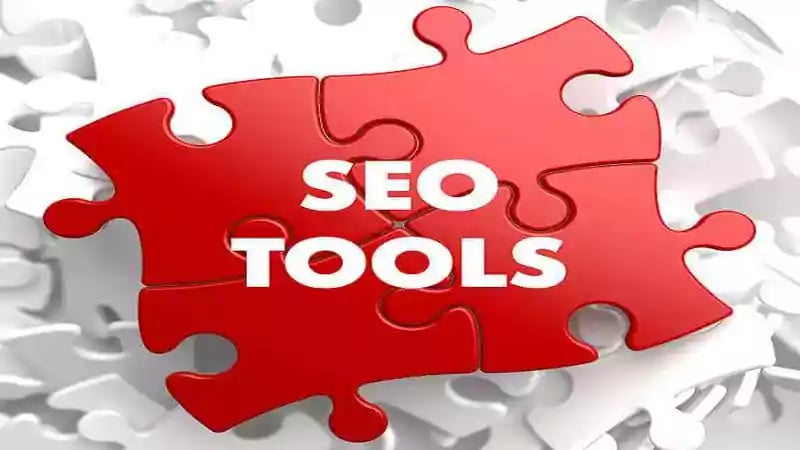
虽然听起来有点夸张,但内链就是它们听起来的样子--将人们指向你域内某个页面的链接。
更深层次地讲,把内链看作是信任票,也就是搜索引擎优化。它们是互联网在说:"这是好东西,你应该相信它"。这既适用于读者,也适用于搜索引擎机器人。
-
当你在行业博客上发表评论,并附上相关支柱页面的链接时,这就是一个入站链接。
-
任何时候,只要你在撰写客座文章时,在作者简介中包含指向 "关于我 "页面的链接,这就是一个入站链接。
-
当您在行业新闻网站上发表文章时,他们所包含的任何链接都会将读者带到您网站上的内容,这也是一个入站链接。
所有这些情况都会提高您的域名权重和搜索引擎优化效果。不过,这些链接出现的域质量会有一些差异。例如,公认的行业思想领袖的博客会比目录网站的链接更有吸引力。关于权威性,我们稍后会有更多论述。
入站链接与反向链接
首先,让我们花点时间澄清一下这个问题。内向链接和反向链接是一回事。反向链接是一个稍老的术语,指的是链接如何 "回到 "你的域名,而内链作为一个短语,是一个较新的术语,与整个内链营销的兴起有关。
对于搜索引擎优化,你知道会有一个缩写词:EAT
谷歌将其建议的搜索引擎优化策略时应记住的因素称为 EAT SEO。EAT是Expertise(专业性)、Authority(权威性)和Trustworthiness(可信性)的缩写。关于提高 EAT 评级的内容很多,但在此不一一列举。因此,我们要说的是,最佳实践的第一条就是继续创建高质量的内容, 让 读者觉得这些内容有价值、相关,并有助于解决他们的痛点。
当搜索机器人来爬行时,创建一个在这三个因素上得分较高的网站应该成为你发展博客和制定完善的搜索引擎优化策略的指导原则。毕竟,谷歌本身也在努力通过这些原则为客户提供价值,所以遵循这些原则应该是不难理解的。
链接配置文件和其他需要记住的因素
您了解自己的链接档案吗?与您在 LinkedIn 或 Facebook 上的个人资料类似,您的域名也有一个个人资料,搜索机器人在确定您在各种搜索中的排名时会查看该资料。您的链接档案是指指向您的域的链接总数、这些链接的多样性、链接到您的域的权威性(或潜在的垃圾性)等等。
通过 Moz 的 Link Explorer 等内链检查工具,您可以检查您的链接配置文件,了解您的工作情况,并突出您可以做得更好的地方。我们强烈建议定期这样做,或许可以作为内容审核的一部分。
除了链接数量等因素外,Google 在检查反向链接时还会考虑许多其他排名因素。链接网站的权威性是一个重要因素。请记住,与目录或较小的利基博客相比,行业领先网站总是更好的目标。来自特定网站的链接数量也是一个重要因素:太多链接会显得垃圾,而只有一个链接则显得乏善可陈。
内容集中度是一个经常被忽视的因素。这指的是您的网站和链接网站内容主题的窄度或广度。如果您的公司有特定的利基产品或服务,那么来自类似利基网站的链接将比来自该利基以外网站的链接更受重视。
为搜索引擎优化建立向内链接的注意事项
做:
切勿:
内链建设应该是内容营销和搜索引擎优化的全面战略的一部分。与此类战略的任何组成部分一样,在制定您的战略时也需要注意一些事项:
-
链接建设和一般的内容营销一样,是一个长期的过程。你不一定能在最初几个月或更长时间内看到效果。但一旦你看到了,就会令人印象深刻。
-
在一开始就花时间和精力与链接网站建立和培养牢固的关系,将使你获得的链接强度和这些反向链接对你的领域产生的拉动作用得到回报。
-
高质量的入站链接是我们的目标,因此请慢慢来,确保您从与您的域名符合相同 EAT 标准的权威域中获得强大的链接,这样您就不会失望。
如上所述,除了链接之外,关键词也是搜索引擎优化策略中必须考虑的另一个方面。
关键词对搜索引擎优化仍然重要吗?
简短回答--是的。
关键词仍然是搜索引擎了解您的网站和初创公司的主要途径。在通过页面搜索引擎优化优化网站时,关键是要包含短尾关键词(1-3 个词的短语)和长尾或语义搜索关键词。后者是指结构自然的完整句子,就像有人在智能手机上使用语音搜索一样。
制定关键词策略的关键在于研究。使用 Google Ad Words、Ubersuggest 或 Buzzsumo 等工具了解您所在行业的流行词。然后建立目标关键词档案,了解最合适的词语和短语。
"被抓取 "是什么意思?
围绕搜索引擎优化的另一个常见问题是 "被抓取 "的概念。那么,被抓取意味着什么?这意味着谷歌发现了你。
抓取是指搜索引擎在互联网上搜索它们不知道的新网页。由于每天都有数以万计甚至数以百万计的新网页上线,因此搜索引擎会不断地进行这种搜索。
最初,您的主页和其他任何在线静态页面都会被索引。这就是 Google 如何发现你并知道返回寻找更新的方式。然后,当您添加内容页面(登陆页面、支柱页面、博客文章等)时,每个页面都会被收录。
添加新内容的频率越高越好。通过关键词为目标角色定制的内容越多越好。
附带说明:索引基本上就是搜索引擎将你的域名加入书签,在他们的互联网 "索引 "中留下记录,这样他们就可以将搜索者指向这些网页。
结论
总之,搜索引擎优化是一项长期的工作。当你的公司长期稳定发展后,你要确保你有一个优化良好的网站和一系列需要关注的指标。考虑一下您的搜索引擎优化策略、您为产生积极的反向链接所做的工作,以及如何将您的关键词整合到内容营销工作中,您就会有一个好的发展方向。
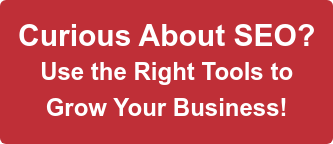





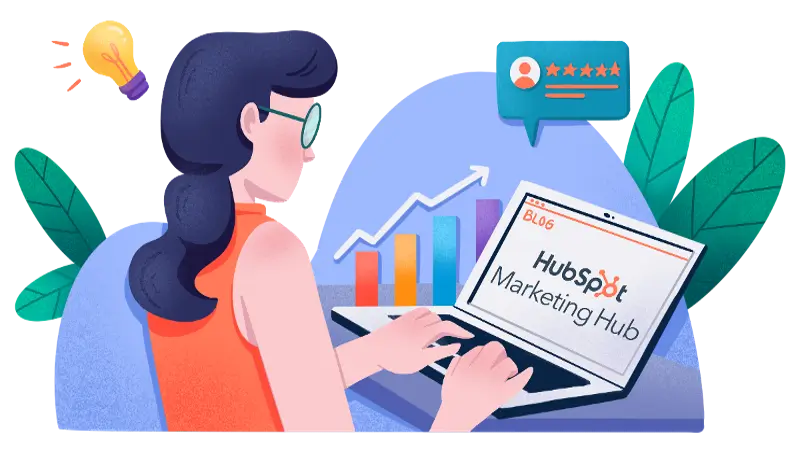


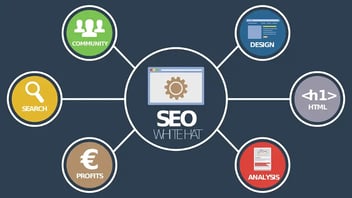
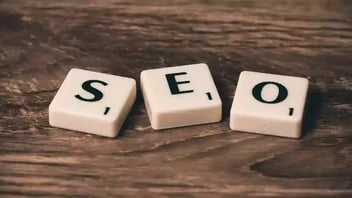

发表评论